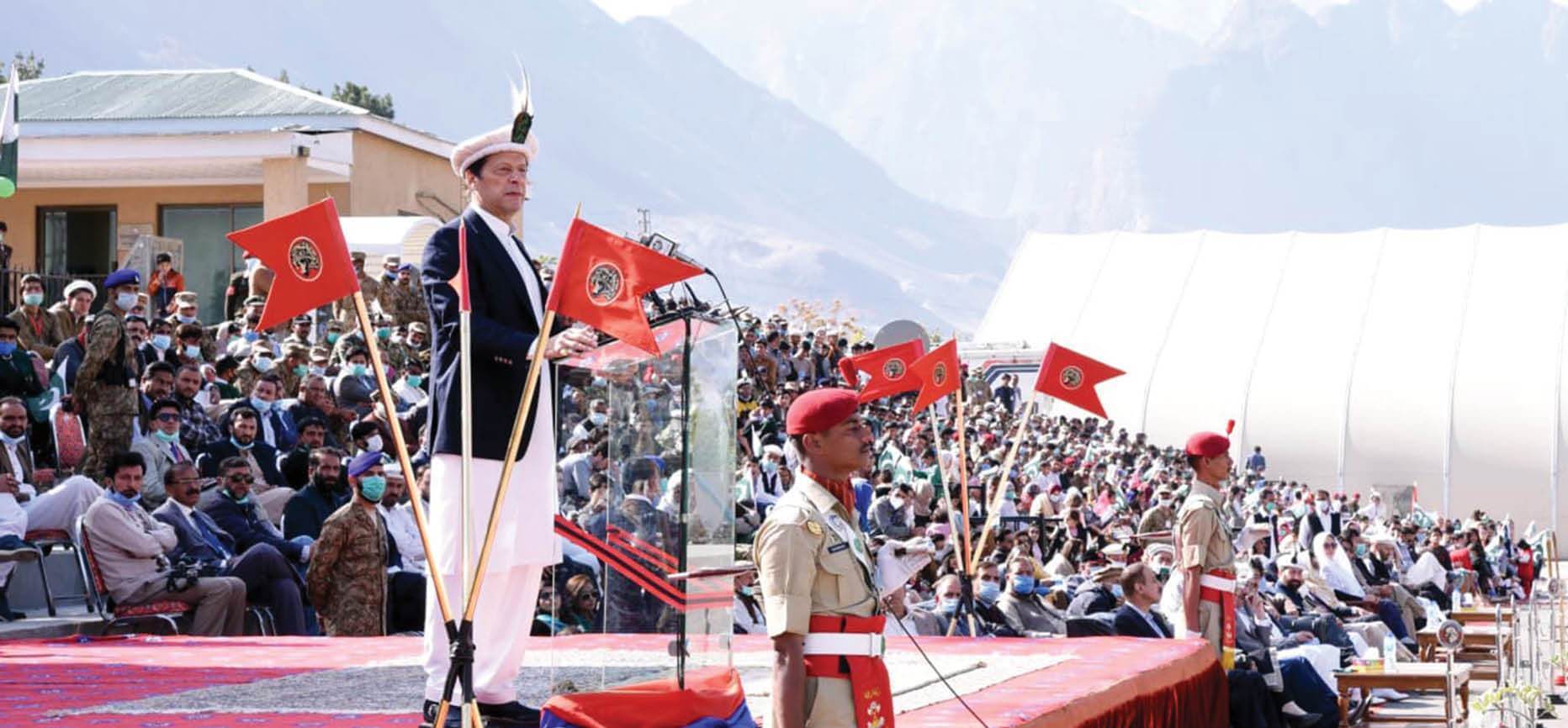Over the weekend, Pakistani Prime Minister Imran Khan, during his visit to Gilgit-Baltistan, announced his decision to declare the region as the fifth province of Pakistan. He said, “One of the reasons for me coming to Gilgit-Baltistan is to announce that we have decided to grant Gilgit-Baltistan the provisional provincial status.”
The Khan-led government has been facing widespread protests from the residents of the region, who have expressed their resistance to Islamabad’s unilateral decision to alter its status. Residents also accuse the central government of exploiting their resources and failing to utilise the dividends for the development of the region. In October, Gilgit-Baltistan also witnessed a call for the release of political prisoners, which led to protests across the area. Earlier this year, a series of protests against China and Pakistan following the decision of Pakistan to allow the construction of dams on the Neelam and Jhelum rivers were also launched. This region is particularly important for Pakistan, and its big-brother China, as it is at the core of the China-Pakistan Economic Corridor.
He also announced his decision to hold elections in the legislative assembly of Gilgit-Baltistan on November 15. This is in furtherance of a Supreme Court order that was passed earlier this year, which allowed Islamabad to conduct elections in the region. In this case, the court was approached by the government in Islamabad following its 2018 order, which was its first attempt to extend legislative, judicial and administrative control over the region. Before the Supreme Court, Pakistan urged for the amendment of this order to allow for the setting up of a “caretaker government during the interregnum period.” Following this, India came out in a “strong protest” against the Supreme Court’s ruling by serving a demarche to the Pakistani High Commission in New Delhi. Consequently, Pakistan scheduled the election for August 18, which was, however, postponed due to the outbreak of the COVID-19 pandemic.
India was quick to respond to Khan’s visit to Gilgit-Baltistan. On Sunday, Anurag Srivastava, the spokesperson for the Ministry of External Affairs said that India “firmly rejects” Pakistan’s move to alter the status of Gilgit-Baltistan, which it considered to be under Pakistan’s “illegal and forcible occupation.” He said, “I reiterate that the Union Territories of Jammu and Kashmir and Ladakh, including the area of so-called ‘Gilgit-Baltistan,’ are an integral part of India by virtue of the legal, complete and irrevocable accession of Jammu and Kashmir to the Union of India in 1947.” He also urged Pakistan to “vacate all areas under its illegal occupation.” India has always maintained that the Gilgit-Baltistan region has been illegally occupied by Pakistan.
This controversy comes shortly after Saudi Arabia released a 20-riyal banknote, which has a map that excludes Pakistan-occupied-Kashmir (PoK) and the Gilgit-Baltistan regions from Pakistan’s territorial area. While there has been no official statement from Islamabad, Amjab Ayub Mirza, a PoK activist, celebrated this move calling it a “Diwali gift” from Saudi Arabia to India. However, New Delhi, a member of the G-20, lodged a formal protest against the released note with the Saudi embassy in India and the Kingdom’s foreign ministry since it also excluded the disputed territories of Jammu and Kashmir (J&K) and Ladakh from the area highlighted as its map.
Pakistan Announces Decision to Declare Gilgit-Baltistan as its Fifth Province
In response, Anurag Srivastava, the spokesperson for the Ministry of External Affairs said that India “firmly rejects” Pakistan’s decision to grant the region a "provisional provincial" status.
November 2, 2020

SOURCE: LEAD PAKISTAN
